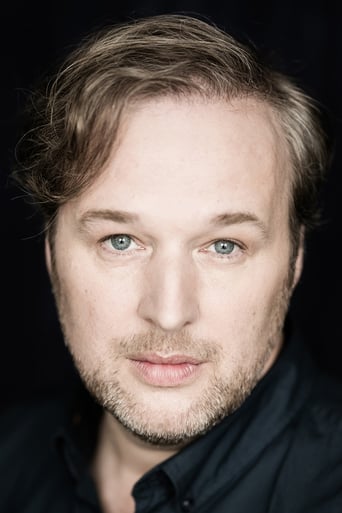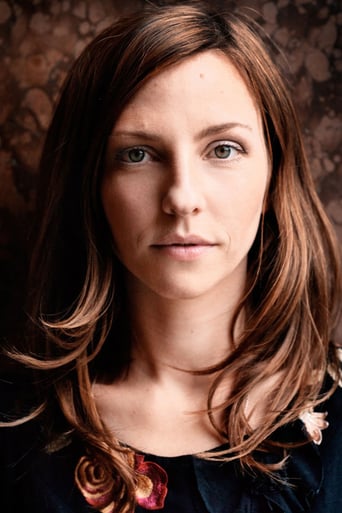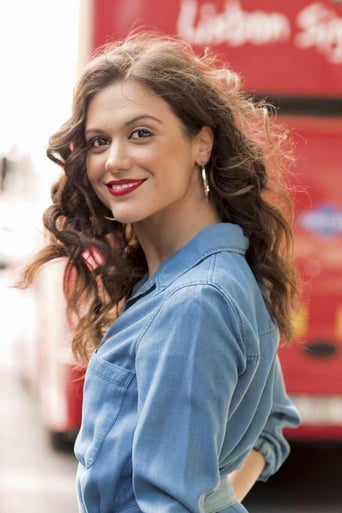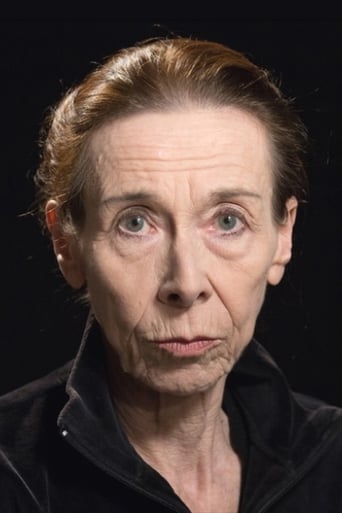GamerTab
That was an excellent one.
Matialth
Good concept, poorly executed.
Glucedee
It's hard to see any effort in the film. There's no comedy to speak of, no real drama and, worst of all.
Horst in Translation (filmreviews@web.de)
Do not be confused by the title of this 90-minute movie: "Amour fou" is not a French movie, but an Austrian film from last year written and directed by Jessica Hausner. The cast includes some names that should be known to German/Austrian audiences. The main character is played by Christian Friedel ("Das weiße Band"), the male co-lead is portrayed by Stepphan Grossman, also a familiar face, even if I did not remember the name. Katharine Schüttler and Sandra Hüller, 2 of Germany's most respected younger actresses right now, play supporting characters. The female lead is played by Birte Schnoeink, who is a newcomer to playing main characters, but she did a good job here, reminded me of Carey Mulligan.The film is about a man who is unhappy with his life at the early 19th century and plans to commit suicide. However, he does not want to go alone, but convince a woman to join him not in life, but in death. After his preferred choice refuses, he finds a "victim" in another young woman. What is maybe the most interesting aspect of this film is how you perceive the main character. Yes he convinces a woman into death, but there are mitigating factors, such as him obviously suffering from depression and also that he would never force anybody to do it. It's personal perception how you like or dislike him I guess. In any case, Friedel was pretty good in here and he carried this movie nicely with Schnoeink. Finally, a word on the visual side: The costumes and set decorations are all pretty convincing and the only reason I won't give this film a higher rating is that period pieces are not exactly my favorite genre. Only weakness for me was near the end that the pistol did not go off when he tried to shoot himself. This movie really did not need a cheap thrill of that kind. Still, all in all, it was a pretty good watch and I recommend it.
Narrow
"Would you care to die with me?" It's a question you'd perhaps expect to hear being uttered from one of Hollywood's more overused basement sets, rather than that of a stately German home during dinner. Austrian writer/ director Jessica Hausner's sixth feature is a study of death as an act of love in the midst of a Prussian Empire on the cusp of French-inspired political and social reformation. Set between 1810 and 1811, the film follows a young romantic poet, Heimlich (Christian Friedel), as he seeks out a partner for what he believes is a perfect act of love and the solution to his melancholic woes; a shared death. After his cousin spurns his fatalistic advances, Heimlich turns his attentions to Henriette (Birte Schnoeik), the wife of a business associate and a woman diagnosed with a terminal condition. What transpires is a drawn out courtship, with an underlying will-they-won't- they murder-suicide pact theme.Far from the dashing romantic image a period poet might evoke, Friedel's Heimlich moves awkwardly through the picture as a skulking, slightly greasy weirdo. He's the Seventeenth Century love child of Max Schrek's Nosferatu and How I Met Your Mother's Ted Mosby, desperately searching for his elusive dream girl. Pursuing his prospective suitors and explaining his desire for this mutual suicide with all the cold, Germanic logic of a Kraftwerk track, "First I will shoot you and then myself". Still in Hausner's depiction of upper-middle class Prussian life, it's perhaps not inconceivable that his offer is met with more of a curious enthusiasm than it is with laughter and a one-way trip to the gallows.There's a visually cruel symmetry to the set design. The rooms at a glance are large and grand, but their interiors sparse and utilitarian. Carpets, drapes and walls are covered with maddeningly geometric, repetitive patterns and each static shot looks like the kind of uninspired Seventeenth Century painting that one might find adorning a Twentieth Century biscuit tin. The colour palate is oddly muted. The characters move in precise, robotic motions, which seem designed to minimise the energy spent. Indeed, the stately group dance in the third act seems to ironically be the least choreographed in the entire film. It's as if this world, one where the sole form of entertainment is gathering around a piano to listen to a child hammer out macabre songs, would be so repressively dull as to make the offer of a late afternoon fatality a tantalising thought. Indeed, while planning their final moments, Henriette seems to have the sheepish smile of a young woman who's been flaunting her ankles all over Berlin. That's almost all the facial emotion that we see throughout the entire ninety-six minutes.Ultimately, it's not all that easy to ascertain what Hausner's sterile slice of period drama is trying to convey. It could be that death, like social change is inevitable, so we might as well enjoy it, rather than hide from it in denial. However, it's a little hard to walk away thinking that the past would have been anything but a torturous purgatory, of which death would have been the kindest release. Perhaps mercifully, the viewers' time there is, in cinematic terms, rather brief.
JvH48
I saw this film at the Film Fest Ghent 2014. What I liked most is the social commentary that was intertwined throughout the story. Nice view on the issues of that era mixed with social/salon behavior of those days mixed with how houses internally looked in those days. Especially the discussions about taxes and social order were very informative, in showing how the higher classes thought at that time, while bringing forward a series of arguments why they considered democracy a bad idea. Also, they had very strong opinions why paying taxes was something for the lower classes only, pending a law proposal at that time to extend taxation to everyone irregardless of rank or title.I'm usually not fond of costume drama's. This time we were lucky to have aforementioned compensations that let me easily watch the slowly developing drama without being distracted by the historic attributes. Of course, what these people motivated to act how they acted, escapes our (at least: my) understanding. But I'm a certified nerd, and does not understand anything where romantic behavior is concerned. And, as a totally different matter, that Heinrich and Henrietta can undertake two journeys without any form of chaperoning, escapes me too.Acting is superb, to such an extent that we gradually get to understand all major protagonists better and better in the course of the movie. That Heinrich halfway tries again to convince Marie into the suicide pact, makes clear that he actually preferred her all the time (rendering Henrietta 2nd choice). Collective suicide or not, this shifting preference makes the finale still more tragic as it already would be without that complication.
mich_1
I saw this film last night, at a festival - on a big screen. It was worth every penny.It's a story based on a German poet's - Heinrich von Kleist - life. I am not enough familiar with his personal life to know how accurately it depicted it, but as a story, it worked. The interesting twist is that most of the story actually focuses on Henriette, the woman Heinrich pursues with an interesting plan. To commit suicide together.The movie is not fast paced, it's a lot of dialogue and not very much comic relief (but there is some). So I wouldn't recommend it to people who only watch comedies and action packed films. But if you like human dramas, this may be a movie for you. The story was compelling (even if ridiculous at points, but that was on purpose), the acting was super well done - especially Henriette, her husband Vogel and Heinrich, and the cinematography was beautiful--some spoilers ahead -- Henriette is a married woman, with a daughter (and the cutest dog), but that doesn't stop depressed Heinrich from calling her out on her loneliness and suggesting to her that they commit suicide together, and thus end their pain. At first, Henriette is very much against this idea. But when she finds out she's suffering from an illness and overhears the doctor tell her husband that her days are numbered - she decides to agree.Throughout the movie, Heinrich is shown to be in love with a different woman, his cousin Marie, who rejected his suicide plan. And though he finds another partner he claims to love, he still wishes it will be Marie dying by his side. This makes it all so much more painful - since the movie depicts Henriette as the main character, we grow to love her (at least I did. Birte Schnoeink the actress was magnificent). Not only is she going to die, but Heinrich prefers someone else would die with him. It makes her death seem even more unnecessary. Henriette's husband, who starts out depicted as a plain man without much to offer - a smart man, but not a very emotional one - grows over the course of the 90 minutes and becomes lovable, and shows his caring more and more. It's not that the character changes, so much as he's given a chance to show all his depth and love. Another sympathetic character is their poor daughter, who is never left out of the loop when the doctor is around and is aware of the whole looming death.The cinematography was done in a masterful fashion. In addition to being beautiful and colorful, the set, the design, the costumes were all very precise. Nothing was out of place, not even an inch. And the photography brought it all together, brought it to life.--MAJOR SPOILERS-- This is not a passionate affair movie, with lots of steamy scenes. In fact, there is not even a kiss. It's a subtle film, and it's very much in sync with the era it's depicting - social conventions, propriety...The death scene was as painful as can be. Such an emotional punch. But not graphic.






